Nursing Today Transition and Trends Zerwekh 8th Edition Test Bank
$38.00
Name: Nursing Today Transition and Trends
Author: Zerwekh Garneau
Edition: 8th
ISBN-10: 1455732036
ISBN-13: 978-1455732036
- Description
- Reviews (0)
Description
You will receive this product immediate after placing the order
Nursing Today Transition and Trends
Nursing Today Transition and Trends Zerwekh Garneau
Nursing Today Transition and Trends Zerwekh Garneau 8th
Nursing Today Transition and Trends Zerwekh Garneau 8th Test Bank
Nursing Today Transition and Trends Zerwekh 8th Edition Test Bank
***THIS IS NOT THE ACTUAL BOOK. YOU ARE BUYING the Test Bank in e-version of the following book***
Name: Nursing Today Transition and Trends
Author: Zerwekh Garneau
Edition: 8th
ISBN-10: 1455732036
ISBN-13: 978-1455732036
Type: Test Bank
– The test bank is what most professors use an a reference when making exams for their students, which means there’s a very high chance that you will see a very similar, if not exact the exact, question in the test!
– The file is either in pdf, doc, rtf or zipped in the package and can easily be read on PCs and Macs.
– Delivery is INSTANT. You can download the files IMMEDIATELY once payment is done.
If you have any questions, please feel free to contact us. Our response is the fastest. All questions will always be answered in 6 hours., most of the time within 30mins
We also faced similar difficulities when we were students, and we understand how you feel.
But now, with the Nursing Today Transition and Trends 8th Test Bank, you will be able to
* Anticipate the type of the questions that will appear in your exam.
* Reduces the hassle and stress of your student life.
* Improve your studying and also get a better grade!
* Get prepared for examination questions.
* Can save you time and help you understand the material.
This is the quality of service we are providing and we hope to be your helper.
Delivery is in the next moment. Test Bank is accurate.
Prepare to receive your Nursing Today Transition and Trends 8th Test Bank in the next moment.
ISBN-10: 1455732036
ISBN-13: 978-1455732036
If you have any questions, or would like a receive a sample chapter before your purchase, please contact us at inquiry@testbanksafe.com
Nursing Today Transition and Trends
Nursing Today Transition and Trends Zerwekh Garneau
Nursing Today Transition and Trends Zerwekh Garneau 8th
Nursing Today Transition and Trends Zerwekh Garneau 8th Test Bank
Nursing Today Transition and Trends Zerwekh 8th Edition Test Bank
Chapter 02: Personal Management: Time and Self-Care Strategies
MULTIPLE CHOICE
1. Which statement indicates the nurse’s understanding of effective time management?
|
a. |
“The purpose of effective time management is to save hours, minutes, and seconds.” |
|
b. |
“The purpose of effective time management is to do as much as possible in as short a time as possible.” |
|
c. |
“The purpose of effective time management is to do as little as possible.” |
|
d. |
“The purpose of effective time management is to achieve personal and professional goals.” |
ANS: D
Making time to meet your individual, family, professional, and career needs and goals is vital to overall success and is the primary purpose of time management. Stating the purpose of effective time management as saving time or doing as much or as little as possible in a short time would not indicate the nurse’s understanding. Procrastinating and doing as little as possible are not characteristic of effective time management.
PTS: 1 DIF: Cognitive Level: Application REF: p. 25
OBJ: Identify strategies for self-care. TOP: Time management
MSC: NCLEX®: Not applicable
2. A student nurse likes to sleep late and has a high-energy period in the evening. The student resists schedules and prefers to study when it “feels right” and in groups. Which of the following characteristics fit this student?
|
a. |
Early bird and left-brain dominance |
c. |
Owl and left-brain dominance |
|
b. |
Early bird and right-brain dominance |
d. |
Owl and right-brain dominance |
ANS: D
The owl does its best work at night, which fits well with the right-brain–dominant person who resists schedules. People with these characteristics choose to do things in their own time and fashion. Early birds tend to do their best work earlier in the day. Left-brain–dominant people process information in a linear, sequential manner, so they would probably prefer a schedule of activities.
PTS: 1 DIF: Cognitive Level: Application REF: pp. 26-27
OBJ: Identify your individual time styles. TOP: Time management
MSC: NCLEX®: Not applicable
3. In 4 weeks, a student nurse will have two tests and one paper due in the same week. What is the most effective time-management strategy for this student nurse?
|
a. |
Control time wasters to have more time for studying and writing. |
|
b. |
Delegate everything possible to create more time for studying. |
|
c. |
Schedule specific times on a calendar to study for the tests and to work on the paper during the next 4 weeks. |
|
d. |
Wait to study for the tests and to write the paper the week before they are due because the student nurse “works best under pressure.” |
ANS: C
The most effective approach to this problem would be to schedule specific time periods to prepare for the tests and write the paper. Waiting until the last minute to study and write the paper creates unnecessary stress and sets the student nurse up for failure. Creating more time for studying does not solve the problem; how that time is organized and how it is used is the key. Procrastinating by putting off assignments until the last minute can lead to extreme anxiety and stressful behavior. Although delegating some tasks is realistic and can create time for studying, it is unrealistic to delegate “everything possible.”
PTS: 1 DIF: Cognitive Level: Application REF: pp. 27-28
OBJ: Identify personal time management strategies. TOP: Time management
MSC: NCLEX®: Not applicable
4. How can the student nurse increase studying efficiency?
|
a. |
Maintaining a supply of simple carbohydrates for a quick energy spurt |
|
b. |
Alternating mental and physical activities to increase productivity |
|
c. |
Working nonstop without breaks to focus concentration |
|
d. |
Delegating tasks of household chores to family members |
ANS: B
Alternating tasks that are mental with tasks that are physical can increase alertness and create a natural energy spurt to keep going. Carbohydrate-induced energy spurts are short lived and ineffective for studying efficiency. Working nonstop without breaks leads to fatigue and burnout. Although delegating tasks would be helpful to the student nurse, it does not directly increase studying efficiency.
PTS: 1 DIF: Cognitive Level: Application REF: p. 27
OBJ: Identify personal time management strategies. TOP: Time management
MSC: NCLEX®: Not applicable
5. The nurse has concluded that he/she is a right-brain–dominant person. Based on the nurse’s time style, which unit governance task will the nurse implement?
|
a. |
Devise a plan to restructure the nursing career ladder. |
|
b. |
Write a procedure for central line care using new equipment that will be available in two weeks. |
|
c. |
Do the unit time schedule for the next pay period. |
|
d. |
Collate data obtained from a chart audit to report at the next unit staff meeting. |
ANS: A
Right-brain–dominant people like to brainstorm to create new ideas and approaches to old problems, so devising a restructured nursing career ladder would be an appropriate task for this person. Writing procedures, completing time schedules, and collating data are indicative of a left-brain–dominant person.
PTS: 1 DIF: Cognitive Level: Application REF: p. 27
OBJ: Identify your individual time styles. TOP: Time management
MSC: NCLEX®: Not applicable
6. What actions should a graduate nurse take in the first work experience to avoid problems with burnout?
|
a. |
Cross-train to work in different areas of the hospital. |
|
b. |
Develop a social group of nurses with whom to share work experiences. |
|
c. |
Plan on several sessions with a counselor regarding managing stress. |
|
d. |
Develop social contacts outside of nursing and maintain good nutrition and good sleep habits. |
ANS: D
Taking care of oneself is a primary component to preventing burnout—for example, avoiding alcohol, maintaining good nutrition, getting adequate amounts of sleep, and avoiding cigarette smoking. Developing social contacts outside the work environment also facilitates reduction of stress from work. Cross-training in different areas of the hospital, developing a social group with nurses to share work experiences, and meeting with a counselor would not be helpful to the graduate nurse in avoiding problems with burnout in the first work experience.
PTS: 1 DIF: Cognitive Level: Application REF: pp. 37-38
OBJ: Discuss the importance of caring for yourself. TOP: Burnout
MSC: NCLEX®: Not applicable
7. Which action by the nurse exemplifies a sense of spiritual health?
|
a. |
Belonging to a church |
c. |
Feeling loved and cared for |
|
b. |
Feeling purposeful and fulfilled |
d. |
Changing religious affiliations |
ANS: B
A sense of spiritual health simply means that we have a daily awareness that there is something more to living than mere human existence. People who have a sense of spiritual being find their lives to be positive experiences and feel good about the future. Belonging to a church, feeling loved and cared for, and changing religious affiliations are not identified as ways that one exemplifies a sense of spiritual health.
PTS: 1 DIF: Cognitive Level: Application REF: p. 44
OBJ: Discuss the importance of caring for yourself. TOP: Spiritual awareness
MSC: NCLEX®: Not applicable
8. Which of the following is an example of a self-defeating belief?
|
a. |
I must always feel loved by everyone. |
c. |
I will get through nursing school. |
|
b. |
I am a caring person. |
d. |
I am getting better. |
ANS: A
Feeling as though you need to be loved by everyone is a self-defeating belief because there will always be some individuals who do not care for you. It would be unrealistic and hence self-defeating to have or express the need to be loved by everyone. There are many ways to exercise our mental potential. One of the first ways is to concentrate on removing negative thoughts or self-defeating beliefs from our minds. Affirmations or positive statements, such as being a caring person, will get through nursing school, getting better with skills or recovering from an illness, and so on are ways to avoid self-defeating comments and behaviors.
PTS: 1 DIF: Cognitive Level: Application REF: p. 39
OBJ: Identify strategies for self-care. TOP: Self-care MSC: NCLEX®: Not applicable
9. Which is an example of an effective self-care strategy for a nurse?
|
a. |
Plan time for physical recuperation after working extra hours. |
|
b. |
Push feelings of sadness, joy, anger, and fear out of awareness. |
|
c. |
Use alcohol to reduce tension. |
|
d. |
Respond to people and opportunities reactively. |
ANS: A
Taking care of ourselves physically entails getting proper nutrition and adequate sleep and exercising on a regular basis and planning for additional time to recuperate when working extra hours. Using alcohol or drugs only medicates feelings and is not considered an effective self-care strategy. Not dealing with feelings is a way to consciously suppress emotions, which can lead to a variety of anxiety disorders. Responding to people and opportunities in a reactive manner or a “knee-jerk” response, is not a good self-care strategy because the behavior can lead to poor decisions without adequate thought.
PTS: 1 DIF: Cognitive Level: Application REF: pp. 43-44
OBJ: Identify strategies for self-care. TOP: Self-care MSC: NCLEX®: Not applicable
10. Nurse 1: “The manager told me that you and I have to change work schedules to accommodate Jim. That means we will both have to work days and nights in the same week. There’s nothing we can do about it.” Nurse 2: “Let’s take a minute and look at the possible alternatives.” What is the best assessment of this situation?
|
a. |
Nurse 1 is exhibiting reactive behavior, and Nurse 2 is being proactive. |
|
b. |
Nurse 1 is exhibiting a sense of empowerment, and Nurse 2 is behaving codependently. |
|
c. |
Jim and the nurse manager have formed a coalition with the goal of dominating other staff. |
|
d. |
The nurse manager is evidencing good self-esteem by daring to take an unpopular action that will expose criticism. |
ANS: A
Whereas nurse 1 is reacting to the situation, nurse 2 is taking time to assess the situation more thoroughly and see what choices they might have. Many of us go through life never realizing that we have many choices. You can choose to respond to people and situations rather than react. It is important to assess the situation and see what options are available and what the consequence of the options might be. Exercising our choice potential also entails that we act responsibly toward others. Codependent behavior is a type of control or enabling behavior. Empowerment is the power to do something and acting self-confidently to do so. The question is asking about the assessment of nurse 1 and nurse 2 responses, not the nurse manager.
PTS: 1 DIF: Cognitive Level: Application REF: p. 46
OBJ: Identify strategies for self-care. TOP: Self-care—proactive response
MSC: NCLEX®: Safe and effective care environment—management of care
11. A nurse has been out of school about 6 months. Which of the following would indicate that the nurse is having problems with burnout?
|
a. |
Having chronic fatigue, increased irritability, and feelings of helplessness |
|
b. |
Feels angry regarding the type of care being delivered and scheduling of staff coverage |
|
c. |
Signs up for extra courses for an advanced degree and works double shifts for extra money |
|
d. |
Is disorganized regarding patient care and has to stay late to finish shift work |
ANS: A
Fatigue, irritability, and feelings of helplessness are all early signs of burnout. Anger regarding care may be very appropriate; how the anger is directed is important. Overscheduling oneself is something that may promote early burnout, as are disorganization and poor time management.
PTS: 1 DIF: Cognitive Level: Application REF: p. 38
OBJ: Describe early signs of burnout. TOP: Burnout MSC: NCLEX®: Not applicable
12. The nurse would identify which of the following strategies as a means of increasing feelings of empowerment?
|
a. |
Requesting an assignment to a different hospital unit |
|
b. |
Assisting friends to cover their shifts when they need time off |
|
c. |
Telling a coworker that a joke heard in private was inconsiderate and thoughtless |
|
d. |
Declining to work an extra shift and going to the movies with friends |
ANS: D
Taking care of oneself is critical to preventing burnout and increasing feelings of empowerment, such as declining to work an extra shift so you can participate in activities with friends and family. Take care of yourself first; then assist others as you are able. Moving to a different hospital unit may be a type of avoidance with an issue that is unresolved. Humor and laughter are important; however, if the joke was unethical, correcting the nurse would not increase empowerment.
PTS: 1 DIF: Cognitive Level: Application REF: p. 44
OBJ: Describe early signs of burnout. TOP: Empowerment
MSC: NCLEX®: Not applicable
13. What activity would most likely promote a positive feeling of well-being in a graduate nurse about 6 months after employment?
|
a. |
Have a group of staff nurses over for a party. |
|
b. |
Participate in hospital-sponsored programs for community health. |
|
c. |
Spend some time with an old friend who is in the middle of a divorce. |
|
d. |
Get involved in a new hobby and attend social gatherings to meet new people. |
ANS: D
Planning pleasurable activities, such as a hobby or attending a social gathering, that are not associated with nursing or other people’s problems can help you to reenergize and feel better about yourself. Having nurses over for a party or participating in hospital-sponsored programs would not give the graduate nurse the time needed away from nursing. Spending time with a friend going through a divorce would not promote a positive feeling of well-being in the graduate nurse.
PTS: 1 DIF: Cognitive Level: Application REF: p. 44
OBJ: Identify strategies for self-care. TOP: Empowerment
MSC: NCLEX®: Not applicable
14. A nurse is considering pursuing additional education in nursing and hopes to be promoted to a management position. What action should the nurse take to best achieve this?
|
a. |
Wait until “the time is right” and inquire about program and promotion opportunities. |
|
b. |
Be the best nurse possible and hope a scholarship or promotion will be awarded. |
|
c. |
Set long-range, mid-range, and short-range goals with specific related activities and time frames to meet these goals. |
|
d. |
Read three books on time management. |
ANS: C
Set goals so that you can prioritize your approach, along with identifying specific activities and time frames to work toward a management promotion are keys to success. Assess the situation and see what activities will provide the highest payoff. Waiting for the right time to achieve promotion, hoping for a scholarship or promotion, and reading books on time management are not effective; instead, the nurse must take action to achieve a goal.
PTS: 1 DIF: Cognitive Level: Application REF: pp. 34-37
OBJ: Identify strategies for self-care. TOP: Time management
MSC: NCLEX®: Not applicable
15. A student nurse is feeling stressed about the combination of nursing courses and clinical experience in the semester. What actions can the student nurse take to reduce stress level based on biological rhythms?
|
a. |
Schedule difficult activities at high-energy times. |
|
b. |
Shorten sleep time to accommodate increased study times. |
|
c. |
Study before bedtime to increase memorization. |
|
d. |
Only study when not feeling stressed. |
ANS: A
Student nurses should create schedules that work with their biological rhythms, such as scheduling difficult activities at their high-energy times. Shortening sleep, studying right before bed, and only studying when they are not feeling stressed are not advised.
PTS: 1 DIF: Cognitive Level: Application REF: p. 25
OBJ: Identify your individual time style and personal time-management strategies.
TOP: Managing your time MSC: NCLEX®: Health promotion and maintenance
16. A nurse manager is assigning additional duties to the day shift nurses to keep the unit orderly and running smoothly. Which assignment would be the best for a right-brain–dominant nurse?
|
a. |
Clean up the break room by noon. |
|
b. |
Assist with completing a unit project, based on specific rules and guidelines. |
|
c. |
Create a poster board in honor of Nurse’s Week. |
|
d. |
Take part in a meeting regarding unit policies. |
ANS: C
Right-brain—dominant people resist rules and schedules and prefer to complete activities on their own time. Creating a poster board in honor of Nurse’s Week gives the right-brain–dominant nurse a chance to create in a personal way without rules and restrictions. Cleaning up the break room by noon, assisting with a unit project guided by rules and specific guidelines, and taking part in a unit policy meeting would be better suited for a left-brain–dominant nurse (structure, organization, rules, time limits, and priorities are important).
PTS: 1 DIF: Cognitive Level: Analysis REF: p. 27
OBJ: Identify your individual time style and personal time-management strategies.
TOP: Managing your time MSC: NCLEX®: Safe and effective care environment
17. What action by student nurses indicates readiness for successful study habits?
|
a. |
Combining their study area with the space that they use to pay bills |
|
b. |
Color coding their materials from each class |
|
c. |
Keeping all materials and papers in one bin |
|
d. |
Cleaning their study area at the end of each semester |
ANS: B
To ensure success, students should first separate the area in which they study from the area where they pay bills. Second, students should color code their materials from each class to ensure that they can find what they need during study sessions. Students should separate out materials and discard what is no longer needed. Frequently cleaning their study area will help them maintain order.
PTS: 1 DIF: Cognitive Level: Application REF: pp. 27-28
OBJ: Identify your individual time style and personal time-management strategies.
TOP: Managing your time MSC: NCLEX®: Not applicable
18. What actions can a student take to manage the phone calls received throughout the day?
|
a. |
Set a specific time during the day for business or school related phone calls. |
|
b. |
Allow phones call at any time as long as they are short. |
|
c. |
If the student needs to leave a message, state that he/she can be contacted any time. |
|
d. |
Keep the phone turned off until all studying is completed for the day. |
ANS: A
Students should set up a time during the day for all phone calls related to business or school. If students need to leave a message, they should state when they can be contacted. Keeping the phone turned off is not a realistic option.
PTS: 1 DIF: Cognitive Level: Application REF: p. 29
OBJ: Identify your individual time style and personal time-management strategies.
TOP: Managing your time MSC: NCLEX®: Not applicable
19. A student wants to begin planning for future educational goals. Which of the following actions would NOT help the student plan?
|
a. |
Review a list of goals once a year. |
c. |
Prioritize goals. |
|
b. |
Make a master list of goals. |
d. |
Cross out goals as they are met. |
ANS: A
In planning goal-related activities, making a master list of goals and prioritizing the goal list are helpful strategies for completing activities and accomplishing goals. It is also helpful to cross off each goal, as it is completed. By doing so, provides a sense of accomplishment and immediate gratification for completing a goal. It is important to continually review the list of goals established to determine if activities or tasks need to be moved based on how quickly they need to be attended to. Reviewing a list of goals yearly would not be sufficient in helping the student plan for completing his/her educational goals.
PTS: 1 DIF: Cognitive Level: Application REF: pp. 34-35
OBJ: Identify your individual time style and personal time-management strategies.
TOP: Managing your goals MSC: NCLEX®: Not applicable
Be the first to review “Nursing Today Transition and Trends Zerwekh 8th Edition Test Bank”
You must be logged in to post a review.

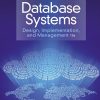

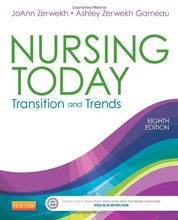
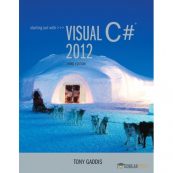
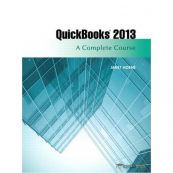
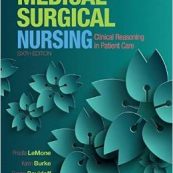


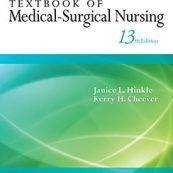
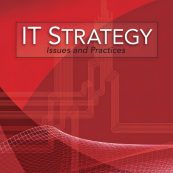

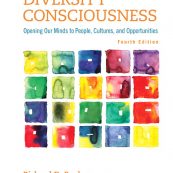
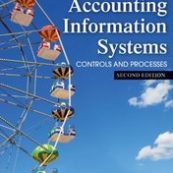
Reviews
There are no reviews yet.